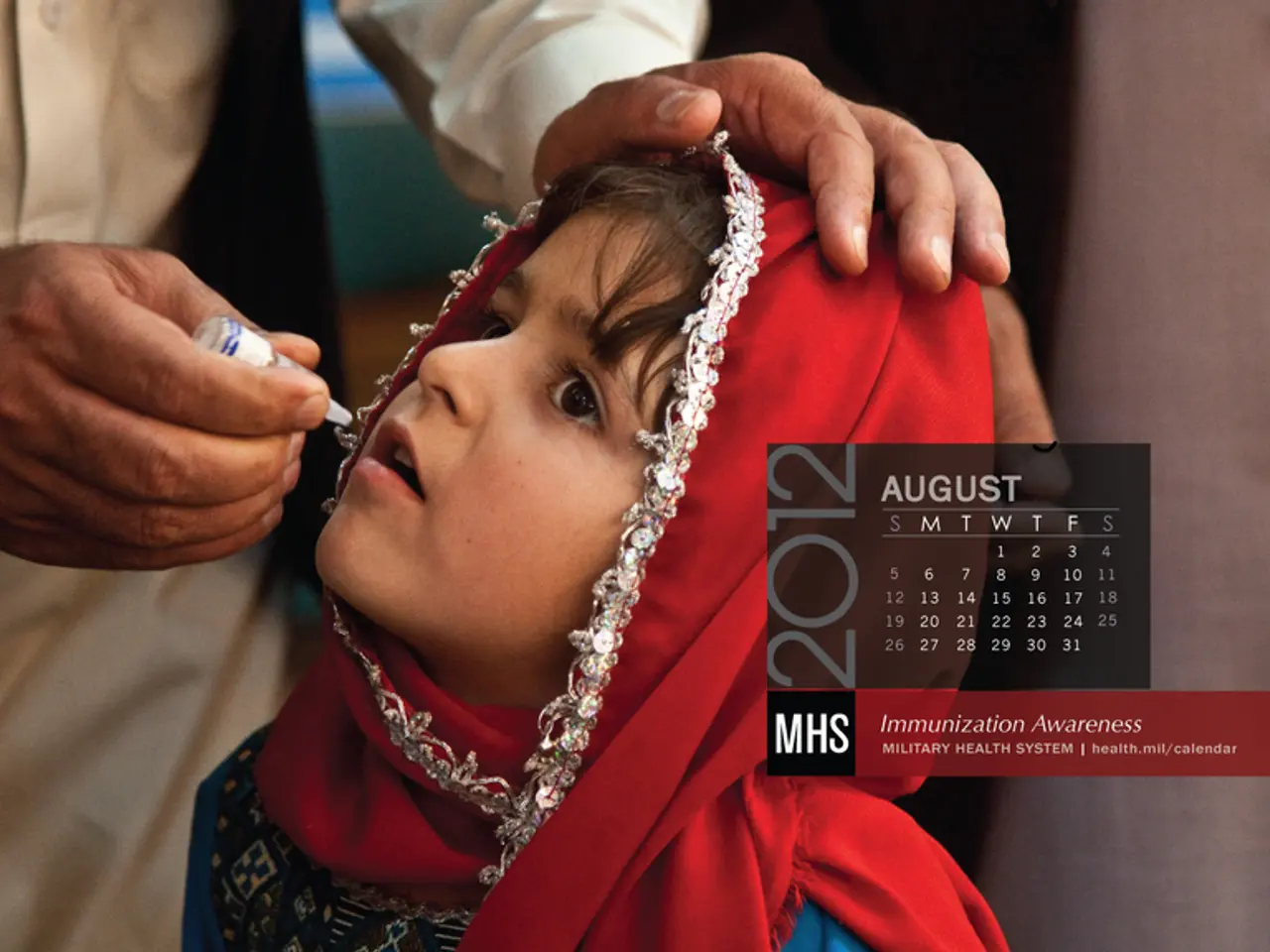United Arab Emirates Aims to Inoculate 90% of Female Adolescents Age 13-14 against HPV by 2030
UAE Making Strides in Cervical Cancer Elimination
The United Arab Emirates (UAE) is making significant progress in its efforts to eliminate cervical cancer, thanks to a comprehensive national strategy that focuses on immunisation, awareness, and early detection.
The strategy, closely aligned with the World Health Organization's (WHO) global strategy, is a testament to the country's commitment to women's health and well-being. In 2018, the UAE became the first country in the Eastern Mediterranean to include the Human Papillomavirus (HPV) vaccine in its national immunisation programme for schoolgirls aged 13-14. This move was followed by an expansion of the programme in 2023 to include boys in the same age group.
The strategy's success is attributed to its roots in prevention, early detection, and public education. Regular screening for cervical cancer is recommended for women aged 25 to 65 in the UAE, with MoHAP recommending screenings every three to five years for early detection and improved recovery outcomes.
The UAE's cervical cancer prevention strategy is recognised as a model for other countries to follow. The strategy aims to vaccinate 90% of girls against HPV before the age of 15 by 2030. This ambitious goal aligns with the WHO's targets for 2030: achieving 90% HPV vaccination coverage in girls by age 15, 70% cervical cancer screening coverage among women, and 90% treatment coverage for cervical pre-cancer and cancer cases.
The strategy's focus on early detection and improved recovery outcomes is key to its success. World-class treatment options for affected individuals are provided, ensuring that those diagnosed with cervical cancer receive the best possible care.
The UAE's cervical cancer prevention strategy is part of a broader national cancer control strategy, which is closely aligned with the "Year of Community" initiative. This initiative emphasises health as a shared responsibility across individuals, institutions, and society.
While no explicit 2025 UAE-specific vaccination or screening rates are available, the country's progress is evident. The incidence of cervical cancer among women in the UAE is below the global average, due to sustained immunisation and awareness efforts. The strategy's success has received praise from the World Health Organization, with the UAE being highlighted as a regional leader in HPV prevention and women's health advancement.
As the UAE continues to make strides in cervical cancer elimination, it serves as an inspiration for other countries. The country's commitment to women's health and its comprehensive approach to cervical cancer prevention are commendable and provide a blueprint for other nations to follow.
Read also:
- Kid-Friendly Smoothie Delights: 7 Tempting Smoothie Recipes for Children
- In the event of Eric Adams' removal in November, progress on the safety of NYC subways may face obstacles
- Racing for the iconic yellow jersey in the Tour de France: preparing riders for the heat
- "Female advocate for women's rights in Morocco apprehended due to allegations of claiming Allah is a lesbian"






